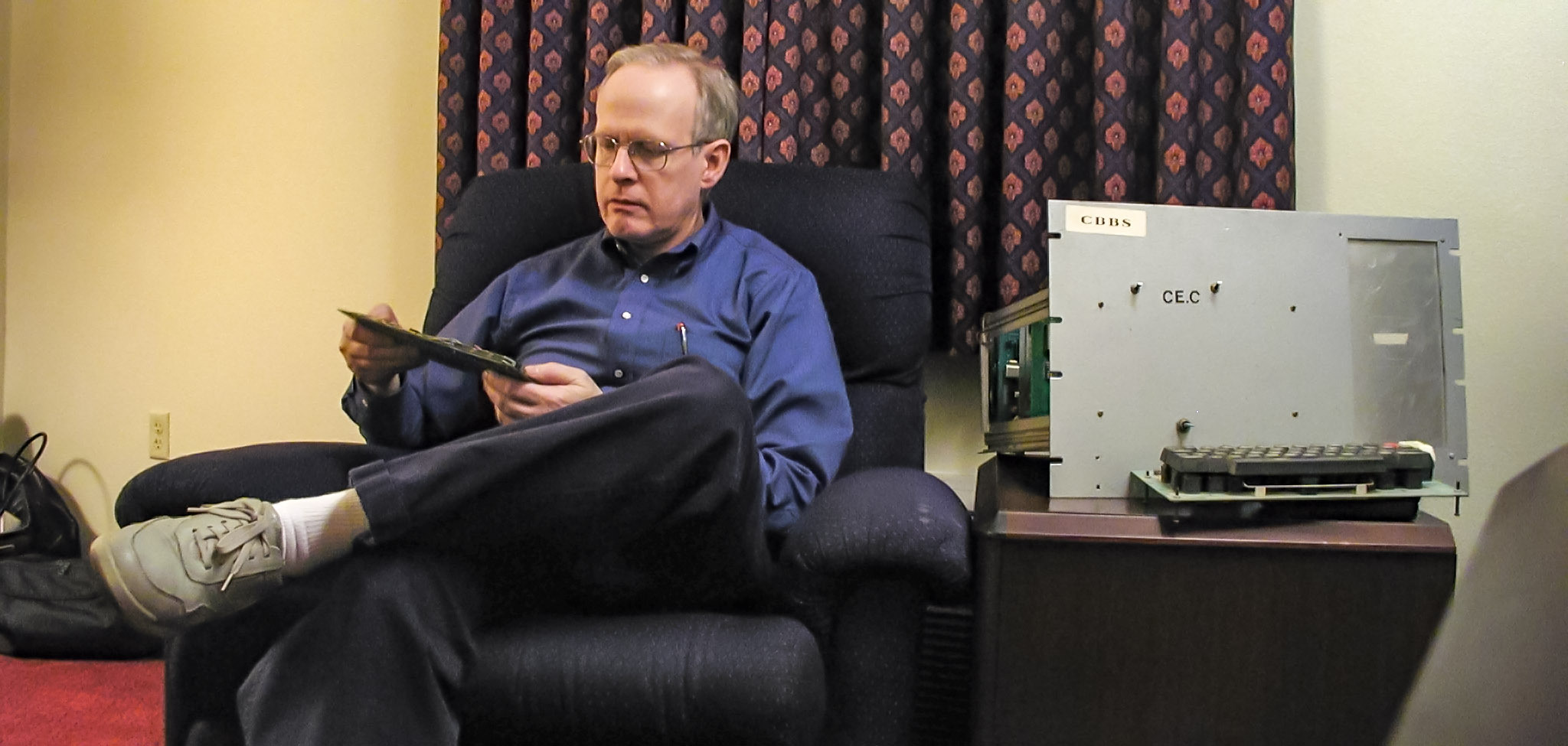- cross-posted to:
- lobsters
- cross-posted to:
- lobsters
Thank you, Ward Christensen. RIP. I was just commenting on another thread earlier today, recounting my nostalgia for dialing into a small BBS after school and talking to my friends.
I met a ton of friends via local BBSes in the 90s. A couple of girlfriends too.
And then there was how I got tons of warez and games… I had access to my dad’s university internet account, so I could get on Usenet and download porn pics. Then I would upload them to local BBSes and get super high ratios.
And then I had the porn and the software.
A true visionary. Thank you for your contributions to the local network that benefinutted from those actions 🤘
Happy to be of service. To myself and others.
Still chasing that BBS fix to this day. Lemmy’s not too bad.
Pour one out for a real OG
F in the chat everyone
Computer nerd me loved dialing up BBS’s on my TRS-80 CoCo with 16k RAM. My parents on the other hand hated getting the phone bill. 30 cents a minute in 1980 dollars was steep
Looks like $1.20 in today’s money, assuming usd. That would add up fast lol, I’d have gotten banned from the computer instantly
I thought Al Gore invented the internet?
Right?
Guys?
You guys remember that? Guys? You remember Al Gore?
Wait, am I old???
From Robert Kahn and Vinton Cerf (the men who invented TCP/IP, which the modern internet is based on):
As far back as the 1970s Congressman Gore promoted the idea of high speed telecommunications as an engine for both economic growth and the improvement of our educational system. He was the first elected official to grasp the potential of computer communications to have a broader impact than just improving the conduct of science and scholarship. Though easily forgotten, now, at the time this was an unproven and controversial concept. Our work on the Internet started in 1973 and was based on even earlier work that took place in the mid-late 1960s. But the Internet, as we know it today, was not deployed until 1983. When the Internet was still in the early stages of its deployment, Congressman Gore provided intellectual leadership by helping create the vision of the potential benefits of high speed computing and communication. As an example, he sponsored hearings on how advanced technologies might be put to use in areas like coordinating the response of government agencies to natural disasters and other crises.
As a Senator in the 1980s Gore urged government agencies to consolidate what at the time were several dozen different and unconnected networks into an “Interagency Network.” Working in a bi-partisan manner with officials in Ronald Reagan and George Bush’s administrations, Gore secured the passage of the High Performance Computing and Communications Act in 1991. This “Gore Act” supported the National Research and Education Network (NREN) initiative that became one of the major vehicles for the spread of the Internet beyond the field of computer science.
As Vice President Gore promoted building the Internet both up and out, as well as releasing the Internet from the control of the government agencies that spawned it. He served as the major administration proponent for continued investment in advanced computing and networking and private sector initiatives such as Net Day. He was and is a strong proponent of extending access to the network to schools and libraries. Today, approximately 95% of our nation’s schools are on the Internet. Gore provided much-needed political support for the speedy privatization of the Internet when the time arrived for it to become a commercially-driven operation.
The above was just a GOP hit piece like when they swiftboated Kerry, I.e when they took something really excellent about a politician, distorted it into an inane strawman, and then mocked it endlessly until people believed in the strawman.
Not old enough to understand the difference between the internet and a dialup BBS, apparently.





